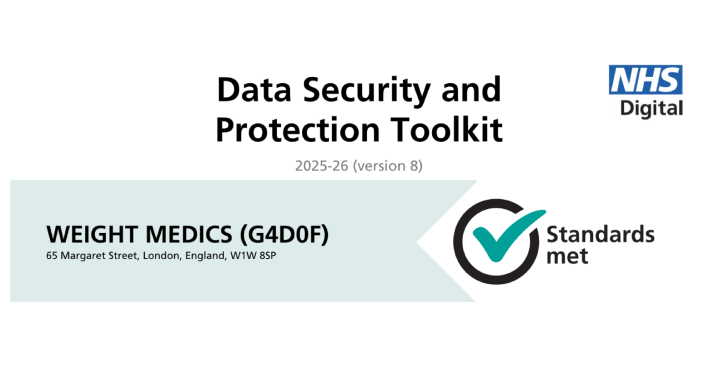
At Weight Medics, we understand that managing Polycystic Ovary Syndrome (PCOS) involves far more than cutting calories or increasing cardio. Affecting as many as 1 in 10 women of reproductive age, PCOS is a complex hormonal disorder linked to weight gain, insulin resistance, and chronic inflammation [1].
Many women with PCOS find it difficult to lose weight, even with consistent effort. Hormonal imbalances—especially elevated androgens and insulin resistance—can make fat loss feel nearly impossible. However, with the right dietary, lifestyle, and medical support (including prescription treatments like Phentermine, Wegovy, or Mounjaro, sustainable results are within reach.
Anti-Inflammatory Diet for PCOS Management
Following an anti-inflammatory diet can help reduce metabolic dysfunction associated with PCOS and support weight loss [2]. At Weight Medics, we recommend a whole-food approach built around:
- Non-starchy vegetables: Broccoli, leafy greens, courgettes
- Low-GI fruits: Berries, citrus fruits
- Healthy fats: Avocado, extra virgin olive oil, coconut oil
- Oily fish: Salmon, mackerel, sardines (wild-caught)
- Pasture-raised lean meats and eggs
- Nuts and seeds: Almonds, chia, walnuts
- Fermented foods: Sauerkraut, kimchi, kefir—for gut health support
Tip: Spearmint tea has been shown to reduce androgen levels and alleviate symptoms like acne and excess hair growth in women with PCOS [3].
Key Nutritional Strategies for PCOS
1. Limit Refined Carbohydrates
Avoid white bread, pasta, potatoes, and sugary snacks that spike insulin levels and worsen PCOS symptoms.
2. Increase Fibre Intake
Fibre slows digestion and stabilises blood sugar. Include foods like oats, beans, lentils, and fibrous vegetables [4].
3. Focus on Protein
Protein helps manage appetite and supports lean muscle mass, which can enhance metabolic function.
4. Choose Healthy Fats
Mono- and polyunsaturated fats reduce inflammation and support hormone production [5].
6. Eat Whole, Unprocessed Foods
Cut back on processed and packaged foods. Stick to natural, minimally processed choices to help regulate hormones.
8. Practice Mindful Eating
- Eat slowly
- Stop when satisfied
- Leave 4–5 hours between meals
- Stay hydrated with water or herbal teas
PCOS and Exercise: Striking the Right Balance
Exercise is essential—but intensity matters. Women with PCOS may be more sensitive to stress-induced cortisol spikes, which can stall weight loss if workouts are too intense. Instead, opt for:
- Brisk walking
- Resistance training
- Yoga or Pilates
- Swimming or cycling
- Aim for at least 150 minutes of moderate activity per week to improve insulin sensitivity, ovulation, and weight control [6].
Minimise Endocrine Disruptors
Endocrine-disrupting chemicals (EDCs) interfere with hormones and may worsen PCOS symptoms. Key disruptors to avoid include:
- BPA (in plastics, food containers)
- Phthalates (in detergents, cosmetics)
- Dioxins (in herbicides, printed receipts)
- Pesticides (on non-organic produce)
- DBP/DEHP (in PVC products, personal care)
Solutions:
- Choose organic produce when possible
- Use clean beauty and non-toxic home products (e.g., Ecover, Method) [7]
Vitamin D and PCOS
Low vitamin D levels are common in women with PCOS and may contribute to insulin resistance, mood swings, and fertility issues.
Try to:
- Get 10–20 minutes of sunlight daily
- Supplement with vitamin D as needed [8]
The Role of Inositol for PCOS Management
Inositol, especially myo-inositol, is a vitamin-like compound found in citrus fruits and beans. It can:
- Improve insulin sensitivity
- Reduce androgen levels
- Support ovarian function
- Lower triglycerides and blood pressure [9]
At Weight Medics, many patients report significant improvements in PCOS symptoms with inositol supplementation as part of a personalised treatment plan.
Medical Support for PCOS: Where Weight Medics Comes In
PCOS is not a one-size-fits-all condition, and your weight loss journey shouldn’t be either. At Weight Medics, we offer clinician-led weight management programmes that address the root causes of PCOS-related weight challenges.
We provide:
- In-depth hormonal and metabolic assessments
- Individualised diet and supplement plans
Safe and effective use of prescription weight loss medications like:
- Phentermine – for appetite suppression
- Wegovy (semaglutide)– for blood sugar control and appetite regulation
- Mounjaro (tirzepatide)– dual-acting GLP-1/GIP agonist with powerful weight loss potential
- Ongoing support from our expert medical team
Ready to Take Control of Your PCOS?
Whether you’re newly diagnosed or have been managing PCOS for years, we can help you finally break through the weight loss plateau. Get tailored, medical support with Phentermine, Wegovy, or Mounjaro, backed by lifestyle and nutrition strategies designed specifically for PCOS.
Contact Weight Medics today for your personalised consultation and begin your journey to balanced hormones and sustainable health.
Written by Dr Debra Marcos | MBBS
References
1. NHS. (2023). Polycystic Ovary Syndrome (PCOS)
2. NCBI. (2020). Anti-inflammatory dietary patterns and PCOS
3. Grant, P. (2010). Spearmint Tea and Anti-Androgen Effects
4. Harvard T.H. Chan School of Public Health. (2022). Carbohydrates and Blood Sugar
5. Mayo Clinic. (2022). Healthy Fats
6. National Library of Medicine. (2021). Exercise and PCOS
7. Environmental Working Group. (2021). Guide to Hormone Disruptors
8. NIH Office of Dietary Supplements. (2023). Vitamin D Fact Sheet
9. Unfer V, et al. (2012). Inositol in PCOS Treatment








